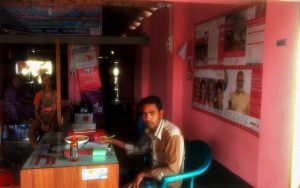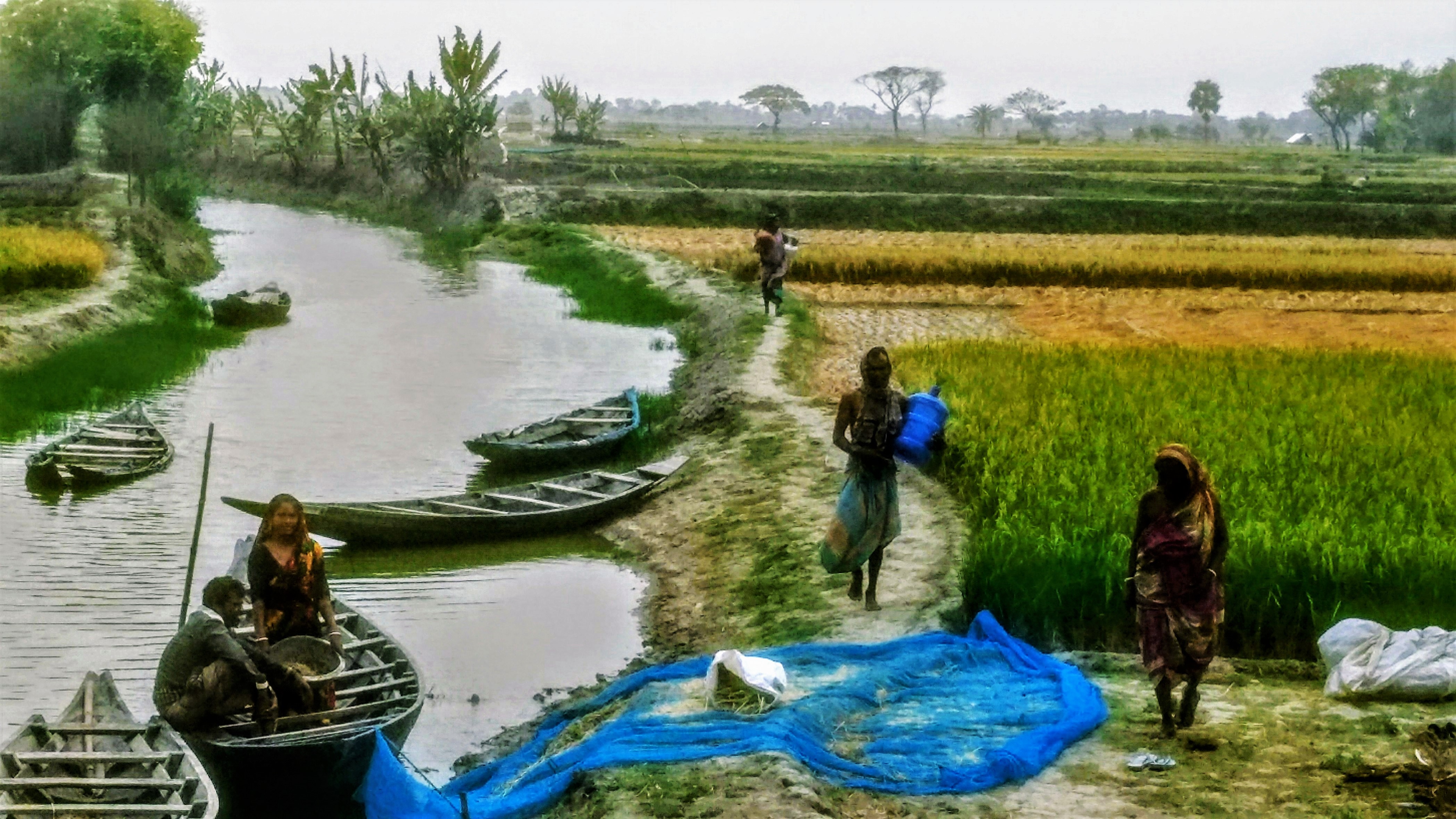Summer had just started to unleash the burning May heat while the farmers waited for the harvest. Rahim came back from the paddy fields and found the water jar empty. “Ah!”, he forgot to refill it again, he was thirsty. Rahim started his regular walk down the aisles of the paddy fields to buy water from a nearby water shop, called “Paradise Pure Drinking Water Shop”.
Like Rahim, the residents of Tala upazilla are welcoming the new trend of buying drinking water from nearby water shops thanks to some water entrepreneurs of their locality.
Tala, is a typical arsenic prone area of southern belt of Bangladesh. The residents of Tala upazilla, like other inhabitants of southwest coastal regions of Bangladesh, had a long struggle to access clean drinking water due to contamination of arsenic as well as bacteria in the underground water, alongside intrusion of salinity in ground and surface water. Various water-borne diseases had become an integral part of their lifestyle over the years. People had to walk for 5-10 kilometers to bring water for their households.
The silver bullet finally hit the holy grail thanks to an innovative pilot project BRAC WASH had undertaken at Tala upazilla in 2015. BRAC WASH initially provided loan to 2 potential entrepreneurs in Tala Upazilla to start water business in their respective catchment areas.
Apart from providing loan, BRAC WASH has connected the entrepreneurs with vendors of Reverse-Osmosis water plant based in Dhaka to buy and set-up the water treatment plant to sell purified water.
‘’What motivated me to start this water business was a potential business opportunity coupled with solving clean drinking water crisis of our village.’’ said Rajib, the owner of Paradise Pure Drinking Water shop, while recounting his early days. Initially, it was quite a challenge to develop willingness among the households to pay for buying drinking water, and bring the service to their lifestyle. Some people even ended up saying that they wouldn’t die drinking the tube-well water, so why on earth they would need to buy water from the water shop.

Community trust has played an instrumental role in accelerating the uptake of this service among the households. Initially, people didn’t feel the necessity of spending extra money to avail this service, considering it a luxury buy. Later, the positive word-of-mouth started to activate in the community; people could easily feel the difference in taste. Now, households on an average pay around 150-200 taka monthly to buy water from the shop for their drinking purpose.
Building on the success of first 2 pilots, BRAC WASH has given loans to 3 water entrepreneurs to start this business in 3 different catchment areas of Tala Upazilla. “We’ve chosen these entrepreneurs based on their geographic locations to bring maximum number of people under the coverage of clean drinking water.”
In total, there are 5 water shops operating in Tala upazilla supported by BRAC. It is critical for businesses to earn satisfactory revenue from these types of water businesses to continue smooth operation.
It is inspiring to see the water entrepreneurs offering new services now (eg. bKash transactions, selling petrols/mobile phones alongside) from their existing water shops making smart use of the shop space to diversify their revenue streams. People can also get water delivered to their homes for an additional charge, which serves new mothers and older villagers very well.
Interestingly, some of the members of households living in nearby cities have paid for their families’ water using mobile money (bKash).
This water entrepreneurship model project is a nice example of how business and social impact can go hand in hand with proper interventions from different stakeholders.
Photo: Salman Sabbab
